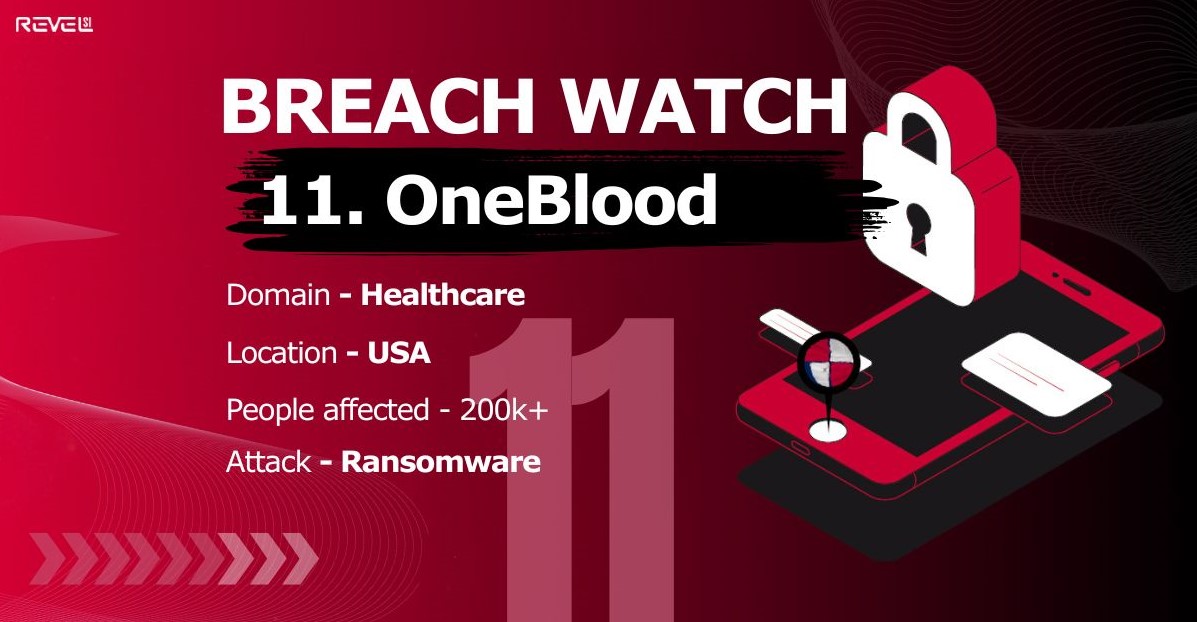Incident Overview
On July 29, 2024, OneBlood, a non-profit blood centre serving over 250 hospitals in the south-eastern United States, experienced a ransomware attack that disrupted its critical software systems. These systems manage the collection, testing, processing, and distribution of blood. According to external reports, the attack impacted operations significantly, but OneBlood implemented manual processes to ensure continuity of services.
The organization emphasized that blood drives and donor centres remained operational despite the challenges. The incident affected the speed of key tasks, such as labelling and releasing blood for hospital use, but operations returned to near-normal levels following intensive efforts to restore systems.
Data Compromised
External sources reported that the attackers accessed over 200,000 patient records. These records likely included personal details, medical information related to blood donations, and operational data about blood supply logistics.
Impact and Risks
The attack had major implications, given OneBlood's critical role in regional healthcare. Manual processes slowed operations, risking delays in blood supply. Exposure of sensitive data raised concerns about identity theft, highlighting healthcare's vulnerability to cyber threats and service disruptions.
OneBlood’s Response
OneBlood responded promptly to the ransomware attack, implementing manual processes to maintain operations while a dedicated team worked to restore systems. Operations have returned to near-normal, and the blood supply system is fully functional. The organization praised the strong donor response, which ensured stable blood supplies despite operational challenges.
Key Takeaways
- Healthcare Under Attack: The OneBlood ransomware attack exposes the rising risk to healthcare, disrupting vital services and compromising sensitive data.
- Data Security Challenges: With over 200,000 patient records breached, the incident highlights critical gaps in healthcare cybersecurity.
- Focus on Prevention: Proactive security measures, such as regular audits, advanced threat detection systems, and robust data encryption, are essential. Beyond technological defences, educating staff on recognizing phishing is critical to preventing future breaches.
Proactive Security Measures
- Incident Readiness: Clear response plans help contain breaches and ensure operational continuity.
- Collaboration: Partnerships with law enforcement and cybersecurity experts strengthen defenses and improve response to threats.
The OneBlood ransomware attack highlights the urgent need for enhanced security protocols in healthcare, particularly for organizations managing sensitive patient data and providing critical services. Proactive measures and robust incident readiness are not just optional—they are essential for ensuring resilience in the face of growing cyber threats.

